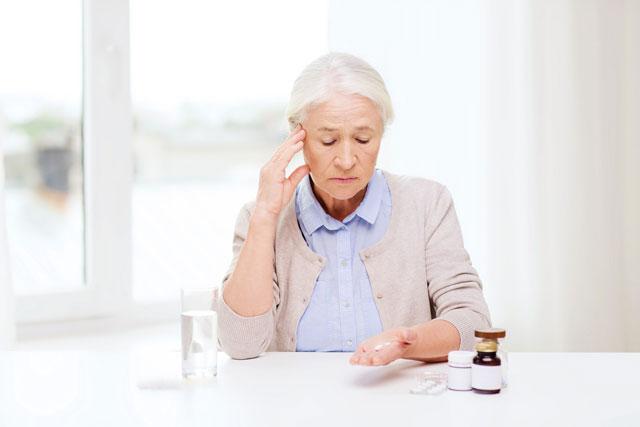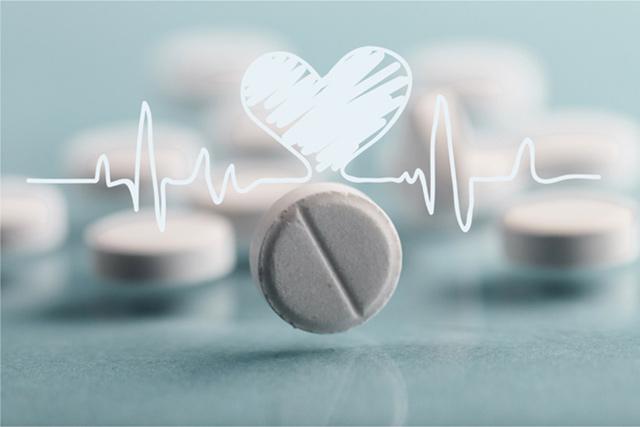You are here
Baby-aspirin risks overwhelm benefits in healthy elderly
By Reuters - Sep 17,2018 - Last updated at Sep 17,2018

Photo courtesy of wordpress.com
In healthy elderly people who never had a heart attack, the widespread practice of taking a baby aspirin every day may do more harm than good, according to a US-Australian study of more than 19,000 volunteers.
The trial has “provided convincing evidence that aspirin is ineffective in preserving good health in elderly people without a medical [reason] to be using it”, chief author Dr John J. McNeil of Monash University in Melbourne told Reuters Health in an e-mail.
The results — which show that risks of major bleeding in low-dose aspirin users overwhelm any heart benefits — were reported online in the New England Journal of Medicine and presented on Sunday at the European Respiratory Society International Congress in Paris.
The findings may upend a common practice.
For people trying to prevent a second heart attack or stroke, evidence in support of baby aspirin therapy remains strong. But the new study, known as ASPREE, looked at the long-standing question of whether a first heart attack, stroke, or case of heart failure could be prevented with small amounts of the blood thinner in aspirin.
Until now, the balance between risks and benefits in older individuals was unclear, said Dr McNeil.
Most volunteers had to be at least 70 years old. Patients who were black or Hispanic and living in the US — two groups that face a higher risk of heart disease or dementia — could be age 65 or older. At the start of the study, all were expected to survive for at least five years.
After about five years of treatment, the rate of heart disease was not significantly lower in the 9,525 volunteers taking 100mg of aspirin daily than in the 9,589 who took placebo tablets.
But the odds of a major bleeding episode were 38 per cent higher with aspirin. Problems like stroke and intestinal bleeding occurred in 8.6 per cent of aspirin patients versus 6.2 per cent of placebo patients.
“This should set the record straight,” said Dr Vincent Bufalino of the Advocate Heart Institute in Chicago, who was not involved in the study. “There’s a lot of folks on both sides of this but this study should end the question. There is no benefit for seniors who do not have vascular disease.”
“I’ve spent the last five, six years trying to get all my seniors to stop taking aspirin” based on the clear risks and unproven benefit, he told Reuters Health by phone. “If you look at the new findings, at best it’s neutral and at worst it increases the bleeding risk.”
And what about people with high blood pressure or high cholesterol who might be taking other medicines to mitigate a higher risk of heart attack or stroke? In the new study, most volunteers fell into that category and aspirin did not seem to help them.
“Essentially, we could not identify any subgroup in whom aspirin was beneficial in preserving good health,” Dr McNeil said.
The ASPREE study was stopped early as it became clear that the “wonder drug” wasn’t working wonders.
While there were 21.5 cases of death, dementia or disability per 1,000 patients each year in the aspirin group, the rate was 21.2 with placebo. The difference was not statistically significant, meaning it could have been due to chance.
But the rate of major bleeding with daily aspirin use was 3.8 per cent, versus 2.8 per cent with placebo.
When the McNeil team looked at death from any cause, aspirin still made no difference statistically, with a rate of 12.7 per 1,000 patients each year with aspirin and 11.1 with placebo.
Extra cases of cancer were the chief reason for the higher death rate, with 3.1 per cent of aspirin users dying of cancer versus 2.3 per cent in the control group.
The higher pace of cancer deaths became apparent three and a half years after the study began, particularly death from stomach and intestinal tumours.
The cancer finding surprised researchers because in other studies, aspirin protected against death from cancer.
Thus, McNeil team said, the cancer results “should be interpreted with caution”.
The study was coordinated at 34 sites in the US and 16 in Australia.
Related Articles
For people without heart disease, taking a daily aspirin to prevent heart attacks and strokes may increase the risk of severe brain bleeding
People without heart disease who take a daily aspirin may lower their risk of a heart attack or stroke, but a new study confirms they also h
Aspirin can reduce the risk of colon cancer by half, but only in people who carry high levels of a specific type of gene, a study released Wednesday found.
















